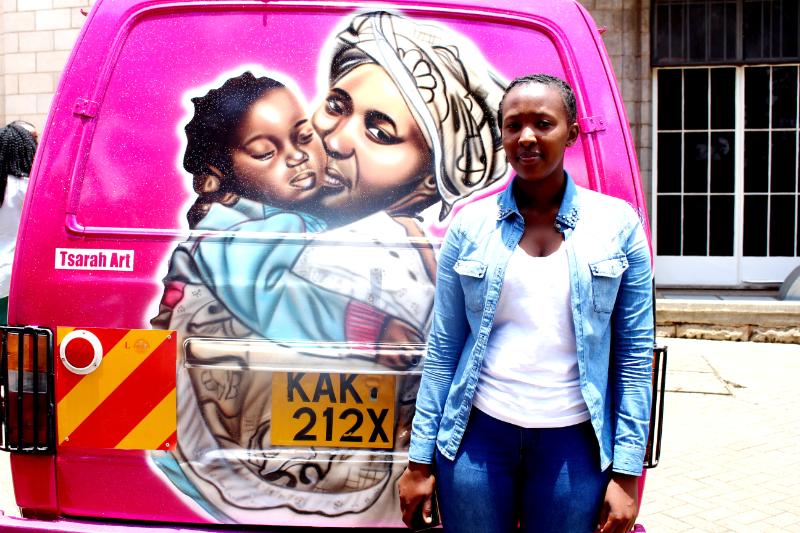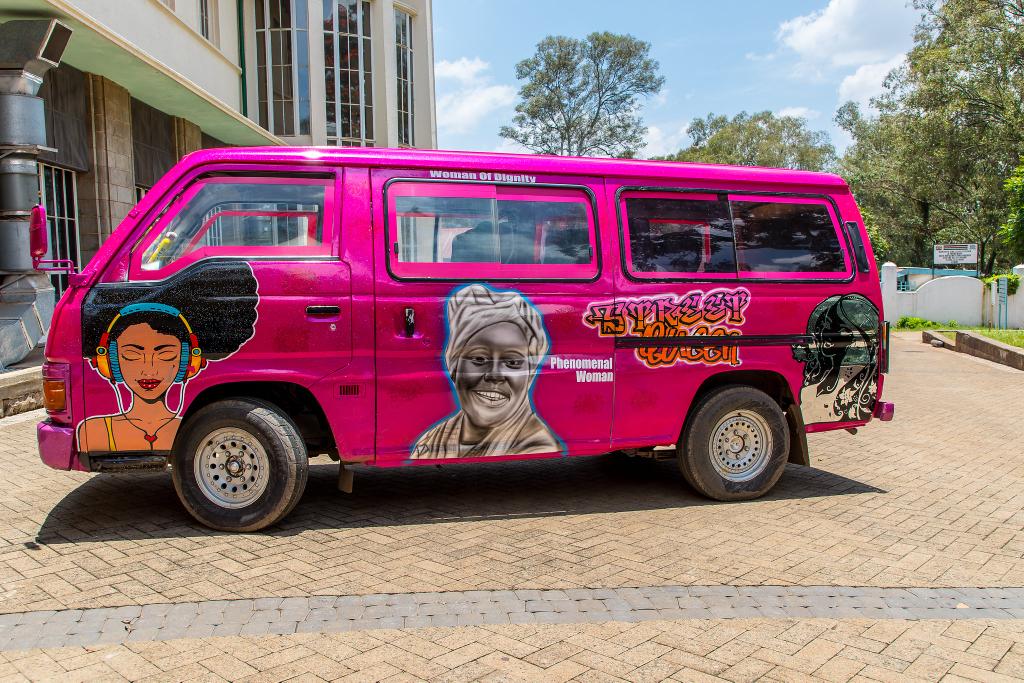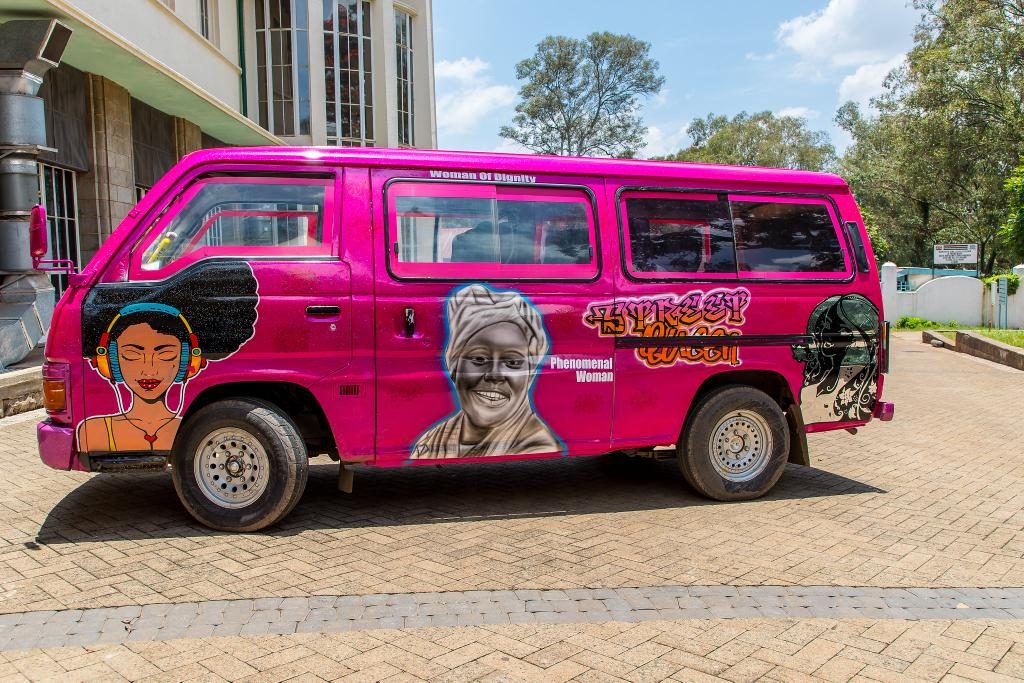Growing up in Nairobi’s Mathare slum, Sarafina Mumbi could easily have ended up like many teenage girls living there – dropping out of school, pregnant, or even married off.

But walking to school every day, she developed a fascination with the noisy, brightly painted matatus – the local minibuses that recklessly ferry commuters through the city’s congested roads – which kept the 15-year-old focused on her future.
Eight years on, Mumbi is not only living her dream designing graffiti-style artwork on matatus, she is shattering traditional gender roles as one of a few women to break into Kenya’s male-dominated matatu sector.
“I don’t know what inspired me. Maybe the music blaring out, or the conductors jumping in and out while the matatu is still moving, or colourful sides of the vehicles,” said Mumbi, 23, who goes by the professional name Tsarah Arts.
“I never thought it unusual, but I knew people wouldn’t agree. I didn’t even tell my mother I wanted to be in the matatu business. She would have been against it. I told her I wanted to be a doctor.”
But, like most women shattering the glass ceiling in their respective fields, Mumbi admits it was not easy.
“Every day I am reminded of my gender. There is always some man there to make some kind of comment about me being a woman,” said Mumbi in a black baseball cap, sitting outside a rundown community centre in Mathare.
“But I will stay in this business. I have to and want to. Despite this harassment, I still want to do this. Each day, I get stronger and stronger.”
TESTOSTERONE-DRIVEN SECTOR
Kenya’s economy has grown on average by 5 percent annually over the last decade, but the benefits have not been equally shared – and women and girls remain disadvantaged socially, economically and politically.

According to the Kenya National Bureau of Statistics (KNBS), women make up only a third of the 2.5 million people employed in the formal sector.
And while women provide 80 percent of Kenya’s farm labour, says KNBS, they own only 1 percent of agricultural land.
Female poverty is worsened by violence and empowerment is hindered by traditional practices such as polygamy, child marriage and female genital mutilation, says UN Women.
One in five women are married before 18 and almost 40 percent of girls and women have been beaten or sexually assaulted by their partners or husbands, it says.
With such odds stacked against women, it is not surprising that men dominate Kenya’s vibrant and profitable matatu sector.
Some 70 percent of Nairobi’s 4 million people cram into matatus which daily bump and bounce along its pot-holed roads.
But competition is stiff – and to attract passengers, matatu owners can invest thousands of dollars in fancy artwork, custom spoilers, flashing lights, heavy base speakers and even on-board entertainment such as flat-screen televisions.
The minibuses sport designs celebrating Premier League football clubs such as Arsenal, Manchester United and Chelsea and portraits of artists, from Ariana Grande to Bob Marley.
But the testosterone-driven sector is almost totally void of women – with matatu owners, drivers, conductors, mechanics and even designers virtually all men.
LEERS AND JEERS
Mumbi knew getting a job in the matatu industry would not be easy. Initially she was either scoffed at, or rejected outright.
But in 2014, she got a break when a matatu artist agreed to take her on as an apprentice – teaching her everything from scrubbing the sides of old vehicles to spray painting them with eye-catching designs.
Mumbi has since designed more than 15 matatus – earning between 100,000 to 400,000 Kenyan shillings ($991 to $3,964) per vehicle.
However she routinely faces hurdles.
“When I go into a garage to work, the men call the others and tell them ‘Come and see this woman painting the matatu’. It’s annoying as they stand and watch me the whole day,” she said.
“Some matatu owners take advantage. When I finish the work and go to collect my payment, they start saying inappropriate things and touching me. I end up running away and I never get the full payment.”
Yet Mumbi remains undeterred and says girls often come up to her and tell her that they too want to work in the matatu industry.
“I encourage other women to join the industry despite all these problems. Every job has its positive and negatives – you just have to be tough and believe in yourself,” she said.
($1 = 100.9000 Kenyan shillings)

